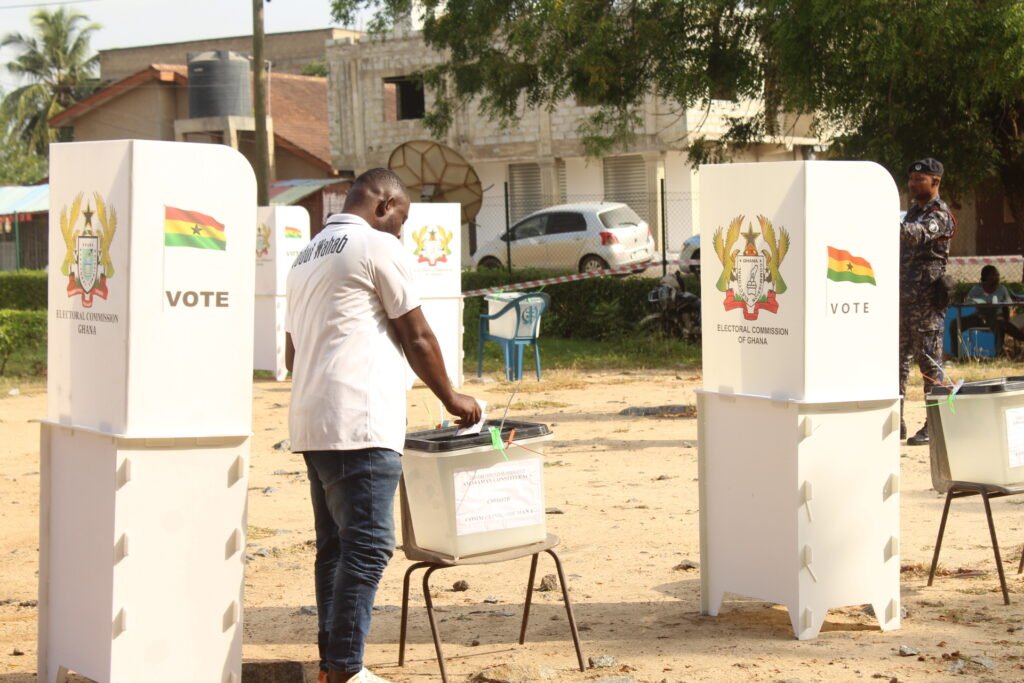Perhaps, one major challenge in this year general election was the length of the presidential ballot paper, which appeared longer than Ghana.
The ballot paper for the December 7 general election, especially that of the presidential race fielded as many as 13 candidates, including Independent thinkers. Incredibly high!
Suddenly and sadly, Akua Donkor, the leader of Ghana Freedom Party, died before the election, and it was too late to delete her name from the presidential ballot paper, giving extra work to the Electoral officers on the day of election, to draw an “obituary line” across the her column and to tell voters about the “unwanted candidate.”
Yes indeed, it’s in the spirit of democracy and fundamental freedoms, including freedom of association that allows the citizenry to form political parties to contest election, once they meet the criteria set by the election governing body.
Consequently, often we see numerous candidates vying to register with the EC to contest elections either through a party or as independent candidates.
However, it is significant to note that democracy is a serious business and not a child’s play. We must make democracy much valued and expensive and not to be toiled with.
This should be so, especially in respect with the formation and contestation of elections by political parties, a fundamental ingredient in democratic dispensation.
Although, Ghana’s electoral process involves due diligence and scrutinising of the various potential candidates and parties contesting the general election, and rightly so, the country’s electoral body is convinced that it had done due diligence to qualify 13 candidates to contest the just-ended general election, some think-tanks have different views.
The Executive Director of the Centre for Democratic Development, Professor Henry Kwasi Prempeh, has a variant view about the clearance of candidates of 13 candidates to contest the recent presidential elections.
Raising germane concerns on the “bloated ballot paper” for December 7 elections, at the 1st anniversary public lectures on the death of renowned lawyer and human rights activist, Akoto Ampaw, last October, Prof. Prempeh blamed the EC for allowing such a huge number of candidates on the ballot paper, in the name of democracy.
The executive director noted “failing to do due diligent and scrupulous work by allowing 13 candidates on a ballot, knowing very well that some of the parties do not meet the needed requirement, when the EC is aware that such parties acted as proxy for either of the two major political parties—New Patriotic Party and National Democratic Congress.”
Prof. Prempeh may have been vindicated when the National Chairman of the People’s National Convention (PNC), Samson Awingobert, at a press conference in Accra, told supporters of the PNC to support the Presidential Candidate of NDC and President-elect John Dramani Mahama, after the party had been disqualified from contesting the December 7 elections.
This confirms Prof. Prempeh’s position that some of the parties act as proxies for either NPP or NDC.
Perhaps the length of the ballot paper accounted for high number of spoilt ballots. This is not surprising because of the high rate of illiteracy as some voters might not have the patient to navigate the ballot, or in the attempt to locate the box for their preferred candidate, could thump print for the undesirable element.
The statistics of the December 7 elections show that spoilt ballot accounted for 239,109 votes.
Indeed, the figure is higher than the total votes of 205,715 attained by the other political parties and independent candidates that contested the elections.
The postulation by the National Commission for Civic Education (NCCE) that it had carried out vigorous civic education on the voting process, and that it anticipated low incident of spoil ballot, may sound sweet talk or gimmick.
The same NCCE had been complaining of inadequate funding to carry to the letter, its mandate of educating the public on the voting process and other civic responsibilities.
The writer, is therefore, suggesting that we should collectively ensure diligence and scrutiny of political parties and their candidates.
This should take place before they are given the clean bill of health to contest election, to avoid “bloating the ballot paper” in the name of democracy, only to have spoilt ballots that can significantly influence the results of election in Ghana!
BY ALHAJI SALIFU ABDUL-RAHAMAN

